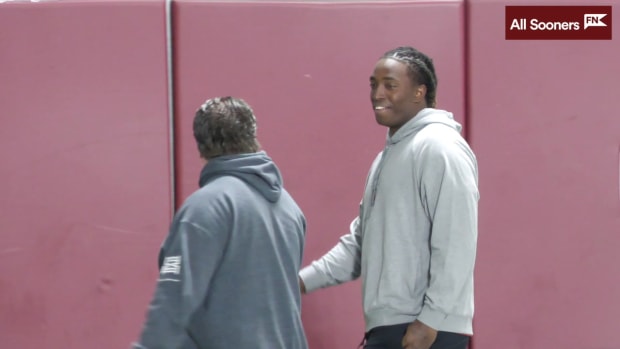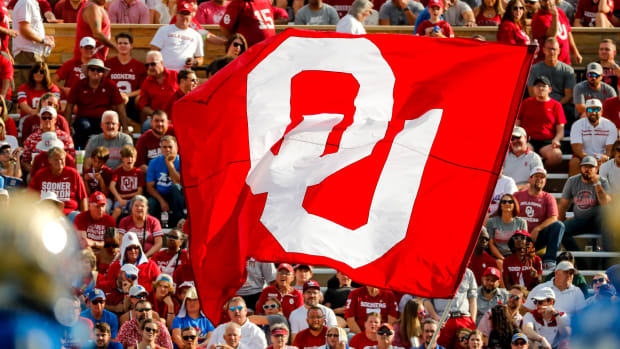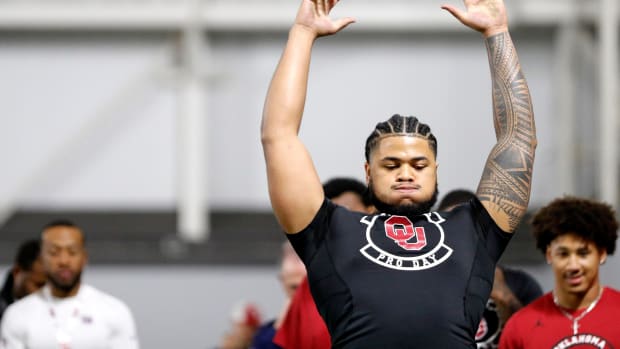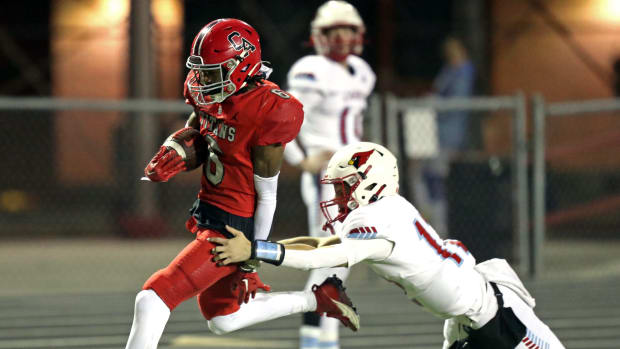From Zero to Hero: Did the Big 12 Just Save College Sports?
Did the Big 12 Conference just save college football — or college athletics in general?
Think about asking that question a decade ago, when valued members were fleeing from Middle America’s fledgling collegiate sports league, and esteemed presidents were decrying their own assemblage as “psychologically disadvantaged.”
Think about asking that question just four years ago, when the Big 12 concocted a harebrained expansion plan and auditioned wannabes from all corners of football academia — online, no less — as if they were trying out for “American Idol,” then, when it was over, declined to hand out any prizes.
Contracting as others expanded, numerically underwhelming with 12 in the name but only 10 members, always reactive, never proactive — especially in the realm of shaping the landscape of college athletics — the Big 12 has long been a follower.
But Tuesday night, after league presidents and athletic directors reportedly chose to run against the going trend and said they wanted to try to continue on a path toward playing football in 2020 — opposite of what CEOs of the Big Ten and Pac-12 decided earlier in the day, which was pulling the plug on college football this fall — the Big 12 may have stepped forward as the savior of not just college football, but of collegiate sports as a whole.
It was reported earlier Tuesday that the ACC would wait for the Big 12’s decision before choosing its own path. That makes sense. With the Big Ten and Pac-12 already out, if the Big 12 had said no to football, then three-fifths of the Power 5 leagues would be on one side of the pandemic fence, and it was widely suggested that the ACC would fall in line.
That would leave the SEC as the sole survivor on the other side — at least for now — and the SEC no doubt would be fine with that.
But with the Big 12 choosing football over fear — again, for now — there remains hope for a college football season in 2020, and so there also remains the promise of actual games, and half-full stadiums (probably), and television (revised, no doubt) and, eventually, revenue.
Revenue not just for the football teams, certainly not for those college presidents, but for the track and field teams and the tennis teams and the golf teams and the soccer teams and the volleyball teams.
Without football — any football, at least in some televised iteration — those sports wither and die. Forget new bats or chartered flights or multiple uniforms or a training table. Without football, many schools can’t even offer scholarships in a lot of those programs.
At Oklahoma, that’s some 450-500 students per year (outside of football) on athletic scholarship. At the Power 5 level, that’s only slightly above the national average.
On average, Division I athletic departments offer between 125-150 scholarships (most are partial scholarships) in sports other than football.
Now take away those scholarships, take away those student-athletes — many of whom would have no chance of attending college without the athletic aid — and try to measure that impact over three or four years, minimum.
The damage of losing that many college graduates — that many nurses, that many occupational therapists, that many teachers, that many coaches, etc. — would be incalculable.
The Big 12’s decision to move forward and play in 2020 is, potentially, that significant.
All which is to say, the Big 12 is trying to play football — or, at least, can say it tried.
The fact is, Tuesday’s news out of the league offices in Las Colinas, TX, must be taken with the reality that, a month from now, two months from now, COVID-19 could prove to be too great a foe.
Games rescheduled for Sept. 26 may never happen. Those in the Big 12, ACC and SEC have wisely made it known that things could change for the worse.
Remember, the Big Ten and Pac-12 announced their 2020 football schedules just last week, then reversed course Tuesday.
If Tuesday was just a fool’s errand and college football can’t be played after all, then the Coronavirus’ global rampage continues and it could leave an imprint on an entire generation.
But today, 11 days into August of 2020, leaders in those leagues are forging ahead with football as planned.
Today, the Big 12 — by saying it will not tuck tail, it will not run and hide, it will listen to its medical advisors and try to manage this virus and do its level best to keep athletes and others healthy and safe — has, for now, gone from zero to hero.
To get the latest OU posts as they happen, join the SI Sooners Community by clicking “Follow” at the top right corner of the page (mobile users can click the notifications bell icon), and follow SI Sooners on Twitter @All_Sooners.







